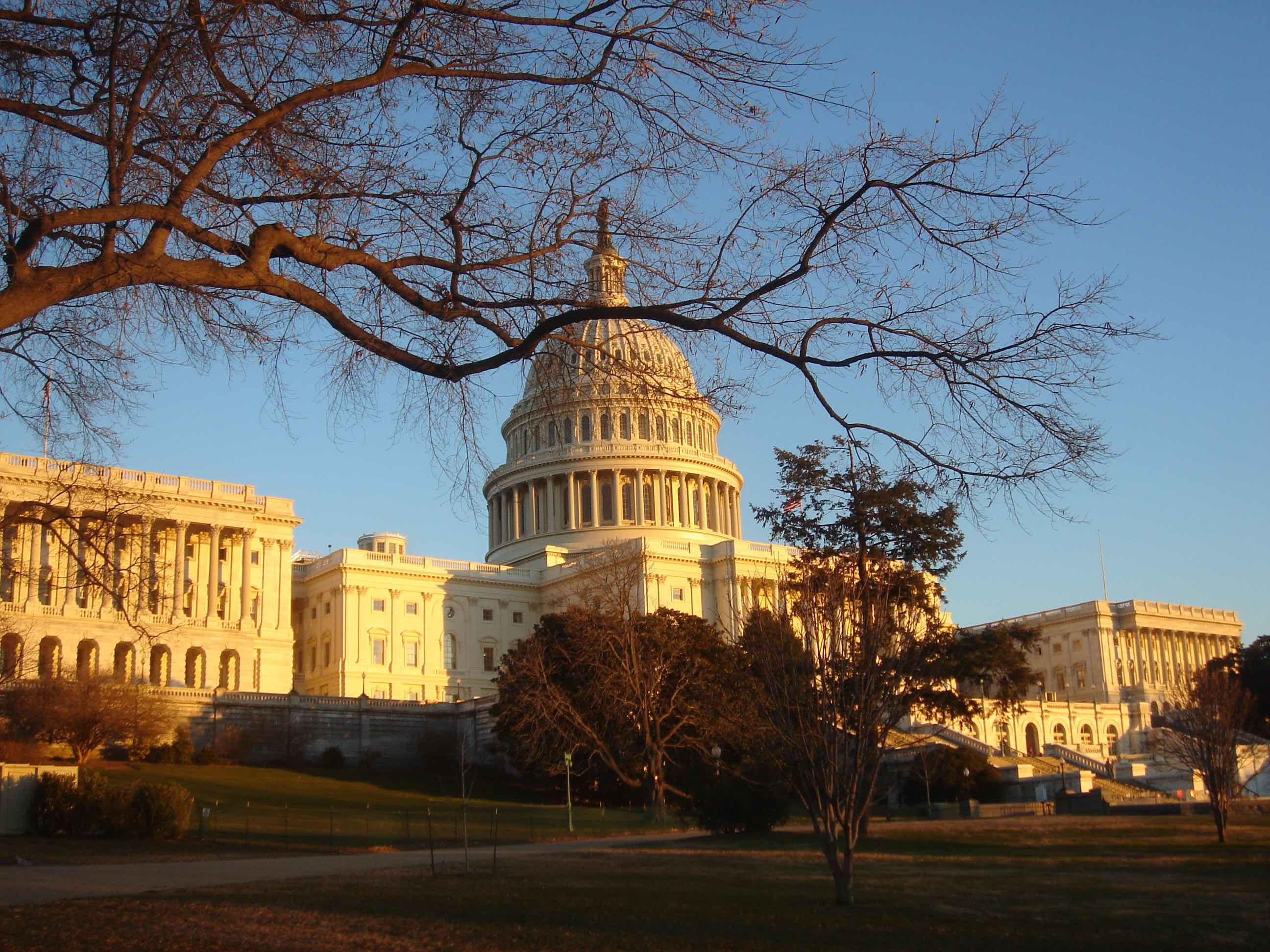With an offensively misleading campaign against Gulf Carriers by suspect interest groups, it is time for a counterattack. Not because I love Gulf Carriers and certainly not because I hate U.S. carriers — but because the truth must be exposed. Today’s topic: 10 ways U.S. taxpayers subsidize U.S. airlines.
1. U.S. Military training pilots
The careers of many U.S. airline pilots start in the U.S. military, where they receive world-class training subsidized by the federal government. This saves airlines millions in training costs, shifting the burden to taxpayers.
2. Essential Air Service
Under this taxpayer-funded federal program, 163 rural communities receive air service that is not otherwise commercially viable. While the goal of linking small communities to larger hubs is admirable, this represents a pure subsidy to airlines who provide this service and is antithetical to “free market” principles.
3. Fly America Act
Since 1974, federal agencies have been required to use U.S. carriers for both cargo and passenger transport when Uncle Sam is footing the bill for travel. While codeshare agreements have broadened the definition of what it means to fly on a U.S. carrier, this program has subsidized U.S. airlines for decades.
4. Air Transportation Safety and Stabilization Act
Don’t forget that after the 09/11/01 attacks, U.S. air carriers received massive taxpayer bailouts in order to survive.
5. Airport Construction
All those taxes that are embedded into your ticket prices are not the only dollars that go toward airport construction. Take LaGuardia Airport in New York City–the $4BN initial phase of renovation program is being funded half by private entities…and half by the Port Authority of New York. That’s hardly the “free market” at work.
6. Chapter 11 (Bankruptcy) protection
Consider the immense protection airlines have in seeking bankruptcy protection, allowing them to shed obligations like pension guarantees onto taxpayers. American, Delta, and United have all used U.S. bankruptcy laws to shield themselves from unwanted debt and labor costs. See this WSJ story.
7. Federal preemption
If someone rips you off, you can take them to court and sue them. Thanks to federal protections unique to airlines, you cannot seek redress through local and state courts against airlines. You must file a more expensive, time-consuming case in federal court.
The American Bar Association stated—
Practically all state consumer protection statutes and tort claims are rendered useless against air carriers.
8. Consolidation
We have shrunk from six major legacy carriers to just three. This has been done with the blessing of the U.S. Department of Justice. Essentially, the federal government has picked winners and losers in the airline industry, rubber stamping an era of mergers with only questionable due diligence on the ramifications to consumers it would have.
9. Airport slots/rules
Permiter rules and slot restrictions enshrine established legacy carriers and block meaningful competition. Legacy airlines don’t really want “free market” conditions in markets in which they dominate. The result? Higher prices, a backdoor subsidy to entrenched airlines.
10. Labor negotiations
Why is that Europe is often crippled with strikes while U.S. carriers have not had a major strike since 2005? One reason is the National Mediation Board, a federal board that is intended to promptly end railroad and airline strikes. Airlines don’t strike — it is workers who do, and the very purpose of the board is to limit this. That’s a government subsidy by a different name.
CONCLUSION
Let’s not forget that U.S. carriers came into existence thanks to subsidies over mail delivery. This post is not intended to attack any of the ten items above, merely to point to how disingenuous it is for U.S. carriers to argue they too do not benefit from subsidies and to show how difficult it is to even pinpoint what the word means. Thanks to Bill McGee of USA Today for his work on this topic, which helps me formulate this story.





Yes, US subsidize airlines. But You really can’t compare the “subsidies” ME3 get from their government. They are really run BY the government.
I understand how much better the service is on ME3, I love the apartment and showers too. But at what cost to the society?
What do you think the cost society will be if Gulf Carriers continue to proliferate?
How do I find the airports involved with the subsidize flights to look into booking a flight to go to say Las Vegas from New York Long Island
Some of those claims are a REAL stretch e.g. Military trained pilots are a subsidy? No. Anymore than military trained auto mechanics subsidize General Motors or joes car repair shop on Main Street or UPS or Joe smith subsidized by Interstate 10! That being said transportation and communication of all types is critical to every citizen to keep the economy running. Govt policies are necessary to keep it going. Public and private entities need it and use it and govt is responsible to support the general welfare of all of them.
This guy is clueless.
1. Civilian trained (self funded) pilots have been the vast majority of airline pilot hires for at least the last decade. Most military pilot commitments are for 10 years, and the former military pilots being hired are mainly military retirees.
2. Most airlines would probably avoid Essential Air Service contracts if given the opportunity.
3. The US airlines are still highly regulated, but have too absorb International ATC services where foreign airlines don’t pay a dime for ATC.
4. The NYC Port Authority is the prototypical bloated government bureaucracy. Landing fees at JFK and LGA and serveral times higher than those at ATL for ex.
5. A “frequent traveler” is no expert
Someone is clueless and it’s not me…
You forgot one – the “economic development incentives” (aka corporate welfare) airlines receive from state and local governments to either maintain their headquarters somewhere, or begin service to a particular airport. Those are the most egregious in my opinion.
Excellent point.
Also, the gov.’t sanctioned joint venture agreements between U.S. carriers and their European/Asia counterparts. It’s anti-competitive and keeps fares artificially high. Thankfully, low cost carriers are challenging the system — at least across the Atlantic.
Great point.
I sincerely hope that your venture to uphold and renounce the truth in this case doesn’t ends up like your fight for your right against Ethiopian Airlines…..
I still intend to win that battle! 😉
How about US carriers hiring crew based in other countries and paying them lower wages than union covered crew?
That doesn’t happen with any US carrier. There isn’t a single major US carrier that is nonunion besides SkyWest. Every pilot operates under and is compensated according to the CBA regardless of citizenship or nationality.
Don’t forget laws that prevent foreign carriers from operating domestically in the US thereby creating a legal oligopoly.
Another point. The US military isn’t subsidized by the government. The government (read taxpayers) pay for it in its entirety. Every. Last. Penney.
re Federal Preemption.
“If someone rips you off, you can take them to court and sue them. Thanks to federal protections unique to airlines, you cannot seek redress through local and state courts against airlines. You must file a more expensive, time-consuming case in federal court.”
This is inaccurate.
First, federal court is not more expensive or time-consuming than state court. The reason corporate defendants prefer to have the case filed in or removed to federal court is usually a wider jury pool and a judge who has more resources, expertise, and patience to address complicated issues, which may involve interpretation of federal law. Also, there may be more federal decisions on questions of federal law, or a particular favorable decision in that federal jurisdiction, that the removing party may want the court to follow as binding or persuasive authority. I would argue that federal judges are better equipped to deal with questions concerning aviation law, which could benefit both plaintiffs and defendants.
Second, the post confuses two distinct doctrines of federal preemption: complete and ordinary.
Ordinary preemption refers to a situation where federal law occupies a particular area of law to the exclusion of state law. Courts have found that ordinary preemption applies on issues governed by the Federal Aviation Act (FAA), Airline Deregulation Act (ADA), Montreal/Warsaw Convention, etc. For example, if one is suing for injury sustained on an international flight, the Montreal/Warsaw Convention may apply. If so, one cannot recover for the injury unless s/he can allege and prove a compensable injury under the Convention (for example, purely emotional distress without any physical injury is not compensable under the Convention). A state court can still hear the claim and decide the federal question at bar.
Complete preemption refers to a situation where the power of preemption is so extraordinary that a defendant may remove the case to federal court if the plaintiff chose to file it in state court. Complete preemption is very rare. Courts have held that the FAA/ADA do not completely preempt state law and cannot serve as a basis to remove the case to federal court. Some courts held that the Montreal/Warsaw Convention completely preempts state law, and provides basis for removal. But, many courts held the opposite. In aviation cases, defendants usually remove complaints from state court to federal court on another basis, diversity of jurisdiction (28 U.S.C. Section 1332), which is not an “aviation” statute. Also, a case involving +75 fatalities (aviation or otherwise) may be removed based on 28 U.S.C. Section 1369 under some circumstances.
In sum, in most cases, nothing precludes state courts from adjudicating aviation cases. But, even if the case is removed to federal court, it does not necessarily disadvantage the plaintiff/passenger. What makes it harder to recover against airlines in some cases, is not the forum (state or federal) but the underlying federal law, which may restrict liability/damages and require proof of a violation of federal law to recover against the airline.
Matthew, it may please you to know that this article has been used by High Speed Rail Alliance to rebut what the Cato Institute has opined about high speed rail: https://www.hsrail.org/blog/10-point-reality-check-cato-institute?fbclid=IwAR13lTLFloSy-b3-5M5WV_GeVSePCkFrEPcb37I9hw6WXN66QIep2UGly-0